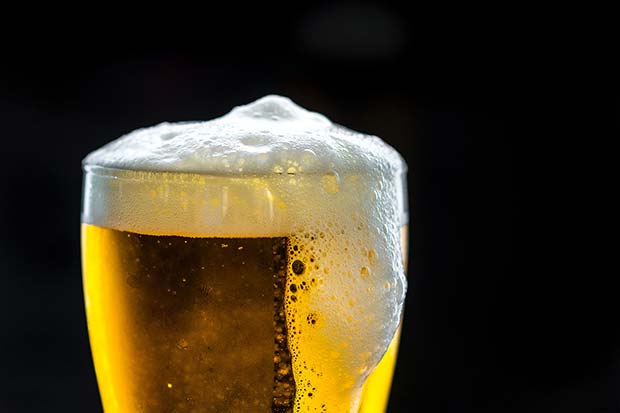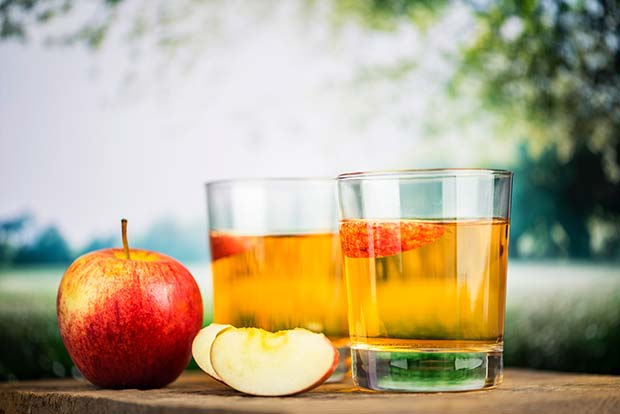In a major piece of good news for the drinks industry, Budweiser Brewing Group has confirmed its commitment to supporting the UK by opening a new London HQ and setting out its ambitions spanning sustainability, smart drinking and championing Britain’s beer community.
 Budweiser brews some of the world’s best loved beers, including Stella Artois, Budweiser, Corona, Michelob Ultra, Bud Light, Beck’s, Bass and Boddingtons. It has pledged to champion Britain’s beer industry with trade-boosting programmes to benefit everyone from barley farmers to pubs and retail. Budweiser also wants to create a nation of Smart Drinkers, helping us shift social norms to embrace moderation and cut harmful drinking.
Budweiser brews some of the world’s best loved beers, including Stella Artois, Budweiser, Corona, Michelob Ultra, Bud Light, Beck’s, Bass and Boddingtons. It has pledged to champion Britain’s beer industry with trade-boosting programmes to benefit everyone from barley farmers to pubs and retail. Budweiser also wants to create a nation of Smart Drinkers, helping us shift social norms to embrace moderation and cut harmful drinking.
Given Budweiser’s initiative, along with the NHS and others’ efforts to change our drinking habits, premiumising our beer purchases so we buy less but better will be essential, if the market is to continue to grow in value.
At the moment the British beer market is in very good shape, growing 2.6% in 2018, the biggest increase in 45 years. Last year’s outstanding summer and the World Cup celebrations are two obvious contributors, but there’s also the craft beer factor to take account of. In recent years craft beer has brought fresh interest to the category and encouraging people to experiment and trade up.
Craft beer’s success is attracting major players into the category and inspiring a wave of exciting NPD. The global beer companies are either buying out previously independent craft breweries such as Camden, Meantime and Fourpure, or launching beers marketed as ‘craft’, such as the Maltsmiths beers from Heineken and Hop House 13 from Guinness and Diageo.
Sharon Palmer, Head of Trade Marketing at Budweiser Brewing Group, has been following developments: “We tend to use the CGA and Nielsen definition of craft, but things are starting to become blurred. Whereas before ‘craft’ could be defined by pence per litre and brewer credentials, we are seeing the merging of the previous ‘craft’ and ‘super-premium’ categories, with ‘craft lager’ making the first moves.
“Craft Ales still remain prominent and the main source of the craft category, with the majority playing in either Pale Ales or IPAs. However, we’re seeing consumer behaviour evolve as the latest switching data shows a number of craft beer shoppers switching into Traditional Ales.”
 Another major development which is premiumising the drinks market is the growth in Low and no alcohol, which is driving NPD in beers, lagers, ciders and beyond. Suffolk brewery St Peter’s has unveiled its full brand refresh, revealing an eye-catching new logo, contemporary colours and a design that brings its heritage to the fore.
Another major development which is premiumising the drinks market is the growth in Low and no alcohol, which is driving NPD in beers, lagers, ciders and beyond. Suffolk brewery St Peter’s has unveiled its full brand refresh, revealing an eye-catching new logo, contemporary colours and a design that brings its heritage to the fore.
The new bottled range incorporates all the old favourites including Golden Ale, Cream Stout, Plum Porter and the alcohol free Without brand. It also includes a selection of innovative new brews, including a delicious new 0.0% fruit beer, Without Elderberry & Raspberry. Driving new innovation in zero alcohol beer, St Peter’s has launched Without Elderberry & Raspberry in response to the growing demand for healthier, more nutritionally balanced drinks that are natural, vegan and free from alcohol.
There are three successful products in the Without range: Without Original, Without Gold and Without Organic, and St Peter’s Brewery remains one of very few brewers creating truly 0.0% alcohol craft beers. All the products in the Without brand are brewed the same way as a normal beer, just without alcohol.
Cider is another sector of the UK drinks market where interest in low and no alcohol drinks is growing, says Darryl Hinksman, Westons Cider’s Head of Business Development. “We’re seeing new, younger and more affluent consumers purchasing these products.
What’s particularly interesting about this cohort of consumers is that many aren’t avoiding alcohol entirely. Instead, they might be ‘mid-week moderators’, curbing their alcohol consumption during the week and, in doing so, staying loyal to the parent brands they know and enjoy.
“What’s great about low-alcohol ciders is that they tend to taste the most like their parent brand,” Darryl explains. “However, we should remember that low-alcohol is still a relatively small part of the cider market overall. We’d recommend making lower-alcohol options such as Stowford Press LA available to shoppers, but retailers shouldn’t get too preoccupied with overhauling their fixtures – particularly where space is limited.”
Based on the growing demand for fruit cider nationwide, in the latest Westons Cider Report, released in April, by 2022 Westons expect fruit cider to account for half of all cider sold. Following the most successful on-trade launch in Westons’ history, last October Westons Cider released Stowford Press Mixed Berries in retail channels.
Westons recently also launched Rosie’s Pig Rhubarb in a four-packed can format. While fruit ciders are becoming increasingly popular, apple cider continues to have a big role in the category, representing 56.7% share of the off-trade and growing 2.5% year-onyear. “Cider in cans continue to drive market performance,” says Chris Milton, off trade sales director, Thatchers Cider. Cans have 52.5% share of total cider and perry volume. Cider is putting in a positive performance across the total market, with latest figures showing the Off Trade at £1.2 billion, with 525 million litres of cider sold in the last year, value growth 5.5%, and volume growth 2.6%.
Thatchers’ best sellers in cans are Thatchers Gold, and Thatchers Haze. Bottled ciders are also important in giving customers a choice. Thatchers Rascal, Thatchers Vintage and Thatchers Katy are are ideal for pairing with food. New this year is Thatchers Rosé, offering a pink, sweet and sparkling alternative.
There’s plenty of headroom for cider to grow. It is currently consumed by under half of the adult population (48%) in the off Trade, compared to total alcohol at 90.9%, wine at 68.3%, and beer and spirits at just under 65%. Frequency of consumption is also amongst the lowest for cider at 10.9 trips per year, compared to total alcohol of 44.5 trips per year.
“Overall, the cider category continues to perform strongly in the UK, with value sales of £1.19 billion across cider and perry in the off-trade, up 5.3% yearon- year.”
Alicia Petchey, Insights Manager at Thatchers Cider confirms her colleague’s comments: “Looking at beer, there’s around 5 million more shoppers than cider. As a sector we have the most room to grow and scope to introduce new shoppers into the category. In the off trade two thirds of volume is apple, sold to a very loyal customer base. To meet this category wide opportunity, continued expansion outside existing cider regions is be key.”
In another low/no alcohol innovation, Bacardi has launched Breezer, a lower alcohol (4% ABV) Ready to Drink 250ml can perfect for summer daytimedrinking occasions with friends.
Breezer is available in Tesco from May in three refreshing flavours that cater to all tastes – Blood Orange & Ginger; Strawberry, Cucumber & Mint; and Lemon & Elderflower.
Recent studies show that RTD is currently the fastest growing category in the total UK alcohol market, thanks in part to a recent trend towards lower alcohol products.
“As consumers become increasingly more conscious of their alcohol intake, we are seeing huge growth in the lower alcohol RTD sector,” says Amanda Almond, Managing Director – UK and Ireland, for Bacardi Limited. “We hope Breezer will cater to people of all ages looking for exciting new flavour combinations in a convenient, easy-todrink format.”
Breezer, being launched in partnership with Tesco, is available in Tesco for £1.80 RRP and will be rolled out to all major retailers from November.
Big brands, big spenders The summer is traditionally an important time for drinks manufacturers to launch consumer campaigns. For 2019 HEINEKEN is putting major resources behind three of its leading brands. Amstel is launching a new TV commercial, Bridges on Bridges, featuring a gigantic Jeff Bridges literally becoming a human bridge, with his arms connecting both sides of the canal for the people of Amsterdam to come together.
Since Amstel was first brewed in 1870 by two friends wanting to share a better beer, the brand has stood for fostering friendships over a drink. The new advert forms part of a £7million campaign running to August across TV, cinema, video on demand and digital channels, reaching 83% of UK adults, along with Amstel’s biggest ever in-store activations.
Another HEINEKEN brand, Italian lager Birra Moretti is bringing millions of people together with a TV commercial, digital, trade activation, PR and festival activation. The campaign is the Italian lager’s biggest to date. Il Grande Invito, meaning ‘the big invitation’, will see millions of people encouraged to gather together around the table over great food and beer, to make time for family and friends. Another HEINEKEN brand, Strongbow, Britain’s favourite cider, has launched a new ad campaign, featuring real people performing in a Northern pub. The ad ends with the familiar sound of the Strongbow arrows hitting the bar and the line ‘Refreshing People since 1960’. The campaign features all three Strongbow ciders – Original, the UK’s biggest cider; Strongbow Dark Fruit, launched five years ago and now the UK’s second biggest cider; and Strongbow Cloudy Apple, a premium, crisp, sweeter cider.
Malibu has given its range a refreshing new look for summer, says Philip Ainsworth, Marketing Director for Pernod Ricard UK. The re-design strengthens the brand’s visual impact in a clean and simple evolution of the brand’s iconic image.
The fastest growing world beer brand in the UK off-trade, Estrella Damm, the Mediterranean beer from Barcelona, has climbed from twelfth biggest world beer brand in UK retail to fourth in the past year. Estrella Damm has unveiled a new logo and packaging design highlighting its rich heritage, all-natural ingredients and quality credentials.




Comments are closed.